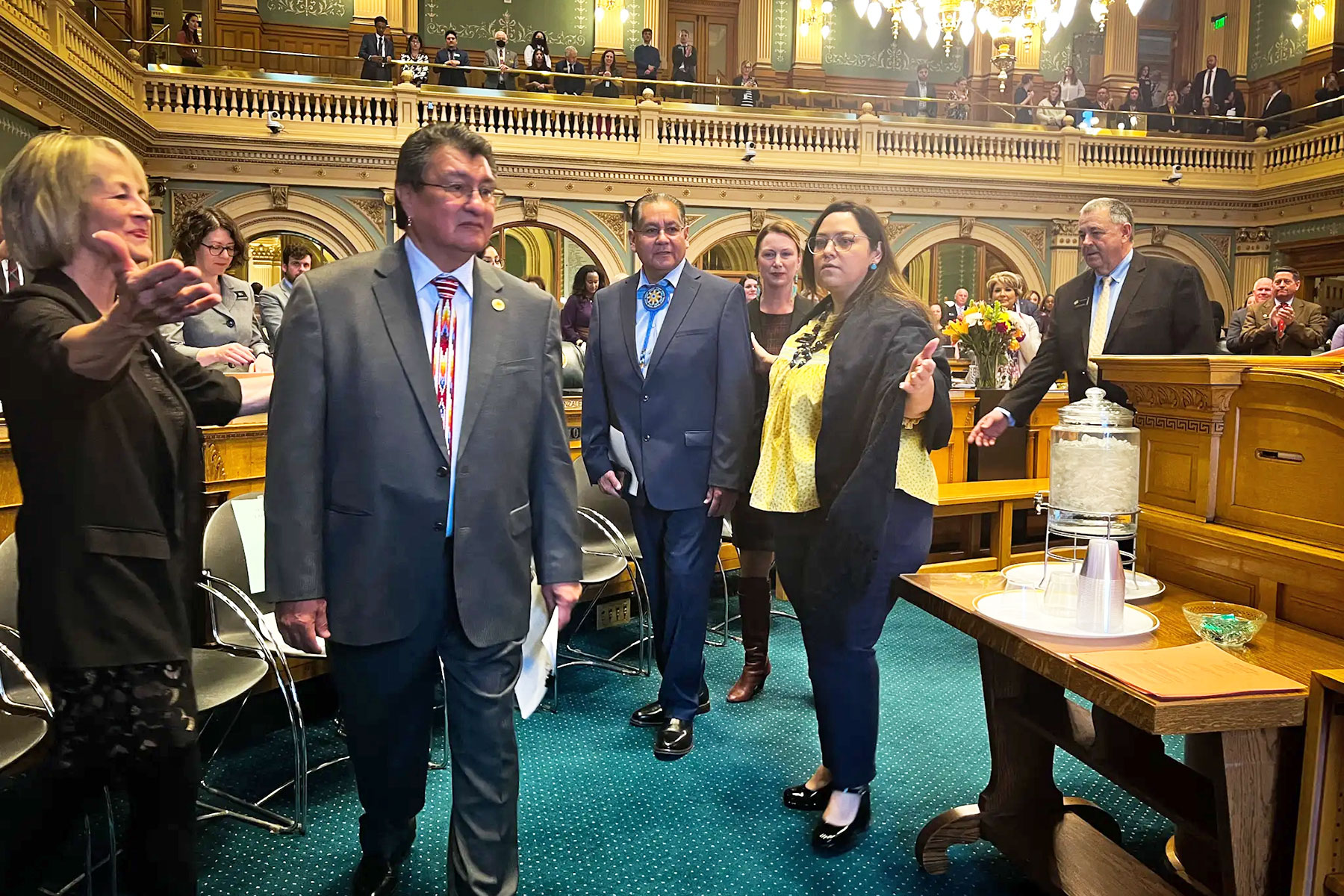Tribes seek fair treatment by the State of Colorado
Facing the same stonewalling tactics preventing equal access to economic opportunities voted into law by Colorado voters in 2019, the Ute Mountain Ute Tribe has joined the Southern Ute Indian Tribe in their legal action to receive fair treatment by the State of Colorado.
“The State must live up to its obligations to our Tribes as outlined in agreements and federal law. Because of this ongoing injustice, we are also now taking the unfortunate but necessary step of legal action to correct this,” Chairman Manuel Heart of the Ute Mountain Ute Tribe said. “The State is wrong to lock our Tribes out of these economic opportunities, and they must be held accountable for their actions to hold back our Tribes.”
“Enough is enough. This unfair treatment must end now. Our Tribes are demanding immediate action to rectify this injustice and ensure the State fulfills its obligations,” said Chairman Melvin J. Baker of the Southern Ute Indian Tribe.
The Southern Ute Indian and Ute Mountain Ute Tribes have been unfairly blocked by the Colorado Department of Revenue from engaging in online sports betting, despite longstanding State-Tribal Compacts explicitly allowing them to do so. After years of attempts to negotiate a fair agreement, the Tribes are both asking the federal court for an injunction so they may compete in an economic market that, effectively, only non-Indian private entities have had primary access to in Colorado since 2020.
In the Gaming Compacts, which have been in place for almost 30 years and approved by the federal government, the State agreed that the Tribes can engage in “those gaming activities and bet amounts that are identical to the activities and bet amounts that are authorized in the State of Colorado.”
In 2019, Colorado voters approved Proposition DD, legalizing online sports betting in the state, thus permitting the Tribes to engage in the same activities. However, for the past four years, the Tribes have been stonewalled by the State, unfairly prevented from accessing these economic opportunities.
The reason for banning the Tribes from equal access to this market: the State is not allowed to tax the Tribes, and they want to. Federal law does not allow the taxation of Tribal gaming activities and mandates that any revenue must be used for Tribal governmental operations and the general welfare of Tribal members.
This year, Colorado state legislators had capacity to refer a measure to the 2024 ballot that will amend the 2019 law to increase taxes on sports betting, and yet have not fixed the issues that unfairly exclude the Tribes from this economic opportunity. After implementing sports betting in 2022, the State of Kansas quickly amended their law last year to allow Tribal gaming entities to participate in online sports betting, recognizing the unfair competitive disadvantage initially created.
While other states have amicably resolved similar issues, the State of Colorado and gaming industry lobbyists have unfairly blocked the Tribes’ efforts to fix this oversight. With unwavering commitment to fairness and a steadfast resolve to hold the State of Colorado to its word, we can ensure a future where the promises of today blossom into a brighter tomorrow.

